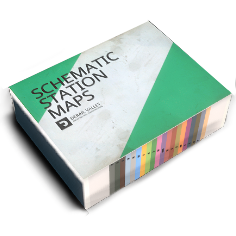Wheelslide: Difference between revisions
Appearance
importing old manual |
importing old manual |
||
| Line 1: | Line 1: | ||
<languages /> | <languages /> | ||
<translate> | <translate> | ||
<!--T:1--> | <!--T:1--> | ||
| Line 10: | Line 9: | ||
{{See also|Traction|Wheelslip|Sander|Wheels & Brakes Damage|Braking}} | {{See also|Traction|Wheelslip|Sander|Wheels & Brakes Damage|Braking}} | ||
[[Category:Traction]] | [[Category:Traction|3]] | ||
Revision as of 15:58, 28 February 2025
Poor traction quality can lead to wheels locking up and sliding, if too much braking force is applied. If the train is in motion, this would cause the wheels to slide over the rails, creating severe wear and the loss of stopping power.
In case of wheelslide, it is necessary to immediately reduce mechanical braking power. To prevent it, the driver can take longer distances to slow down or rely on alternative braking methods, such as dynamic brakes. Using sand can help too, but only on motorized vehicles equipped with sanders, and not cars.
See also: Traction, Wheelslip, Sander, Wheels & Brakes Damage, Braking
